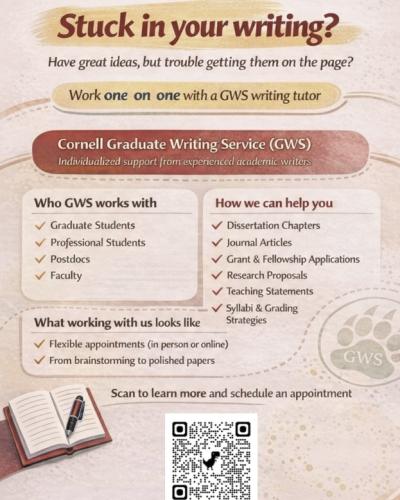The KNIGHTLYnews is an online forum where FWS instructors and other teachers of writing can swap and share ideas for best classroom practice. Weekly posts are designed to help teachers develop lesson plans and writing assignments, and respond to classroom challenges by introducing new teaching tools and sharing emerging pedagogical ideas. Posts also direct readers to program and campus resources that support teaching and learning, and provide opportunities for peer collaboration and mentorship.
I recently had the pleasure to meet with and listen to Dr. Katie Rose Guest Pryal talk about accessibility and neurodiversity in the university writing classroom. Dr. Guest Pryal studies and writes about the ways in which higher education should replace the accommodation model with accessibility practices that serve all students. She focuses on students and faculty who may be working with a range of disabilities, most commonly: anxiety, depression, ADHD, and autism spectrum.
The problem, she writes is, “Without normalizing neurodiversity, you risk becoming no longer you in the eyes of others, but rather disabled-you. And for many in higher education, that risk is just too high.”
The solution is to work towards de-stigmatizing these disabilities in the university which often places emphasis on rational thinking and the value of the mind. We can evolve our pedagogy and classrooms to create accessibility for our fellow instructors and our students.
keywords:
- ableism
- neurodiversity
- neurotypical
- accommodation vs accessibility
Question: Why, you may ask, don’t neurodiverse and disabled students ask for help? Or why do they mask their disability?
- They don’t know they have a disability.
- Cost (Testing can often cost thousands of dollars and expire in 3-5 years).
- Stigma (most common).
We should never ask students to disclose their disabilities to us. Rather, we should ensure that all our students can learn from us.
Accessibility and FWS Design
- Educate students. Include readings and teaching artifacts from neurodiverse authors.
- Put welcoming language on your syllabus. Example: “I welcome your accommodations and want to support your needs. Let’s talk!” (See below for a sample syllabus statement.)
- Rethink class participation. Expand this beyond speaking.
- Design assignments and tasks that are a . necessary b. inclusive with Universal Design
- Establish deadlines that have ‘window’ due dates. For example, Essay 2 is due the week of…
- Use Assistive Technologies or tell your students about them: a.) Text to speech b.) Dictation Software. c.) Audio recording/notetaking.
Accessibility and Pedagogy
- Ask: What neurotypical and neurodiverse behaviors do I, the instructor bring to this class?
- Add time and slow down. Students thrive when they can fully process your input.
- Avoid “cold- calling” students.”
- Make group assignments low stakes and offer assigned roles for each group member.
- Be more accepting of “procrastination” which can also be anxiety, perfectionism, and being overwhelmed.
- Rethink deadlines. Rather than penalize, ask, “Are you okay?”
- Rethink attendance. Keep your students involved and celebrate them being in your classroom.
- Implement “same paging.” Ensure that everyone understands what is happening in each class.
Also!
Befriend Student and Faculty Disabilities Services so that you can ask them questions as they arise.
Further Resources
Beaton, Sirois, and Milne. Experiences of criticism in adults with ADHD: A qualitative study (2022).
Harper-Hitt, Allison. Rhetorics in Overcoming: Rewriting Narratives of Disability and Accessibility in Writing Studies (2022).
Pryal, K. R. G. (2020). Resources. Katie Rose Guest Pryal. https://katieroseguestpryal.com/.
Wood, Tara. Cripping Time in the College Composition Classroom (2017).
__________
Sample Syllabus Statement
Individual Accommodations
If you know of anything that will influence your performance or participation in this course, please discuss it with me. I will carefully consider your situation and work with you toward a reasonable outcome. If you need special consideration because of a disability or learning difference, a language barrier, a cultural misunderstanding, or are simply having trouble understanding the goals of this course, please communicate with me as soon as possible. I am grateful to all of the students who have helped me see how my teaching can better resonate with individual drafting needs or learning styles. Their experiences and the solutions we have designed together have invariably made my teaching stronger and more accessible for all students.




